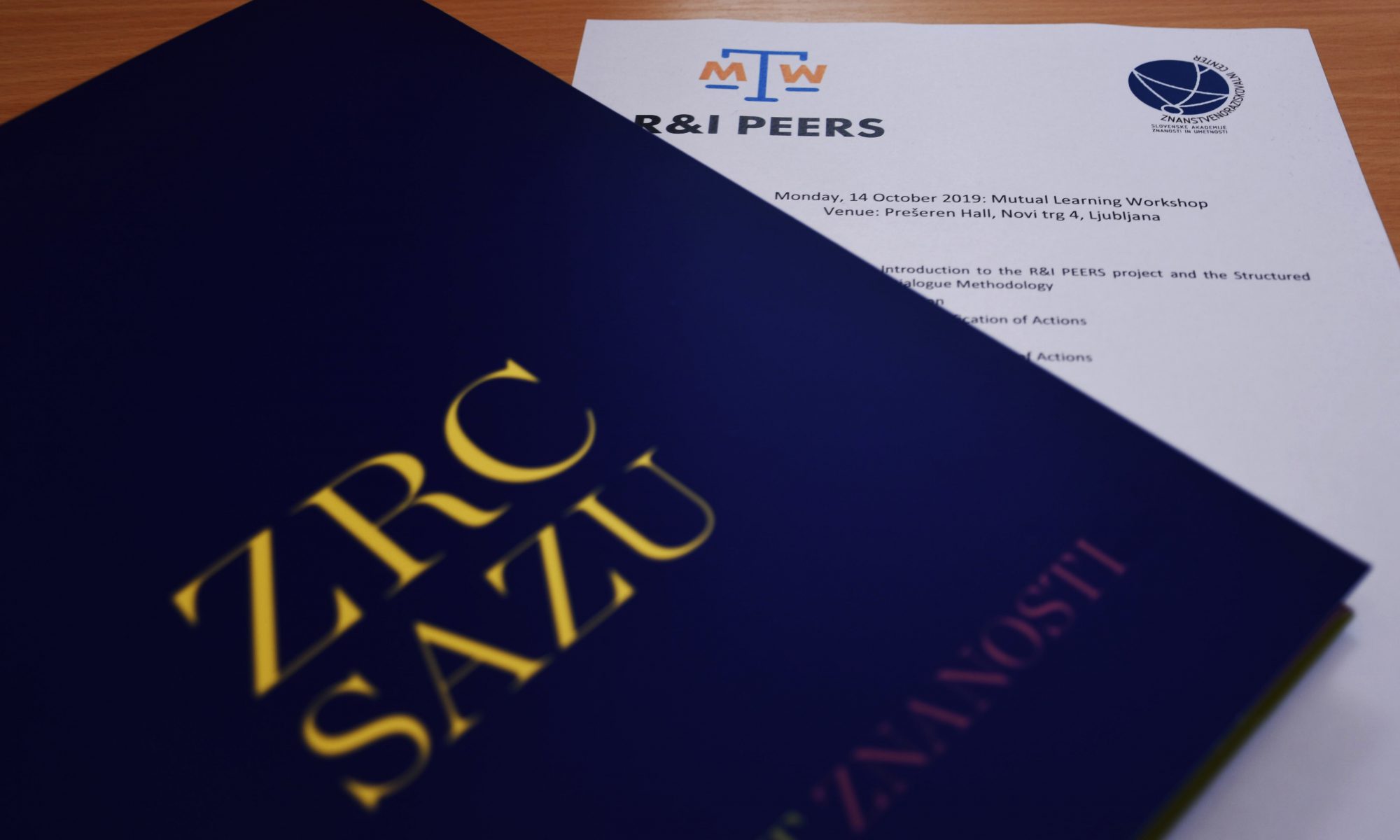On October 14, 2019, the second Mutual Learning workshop under the topic of “Towards the identification of measures and actions for successful Gender Equality Plans implementation within Research Performing Organisations (RPO)” took place in Ljubljana in collaboration between the Znanstvenoraziskovalni Center Slovenske Akademije Znanosti In Umetnosti (ZRC SAZU) and the Cyprus Neuroscience & Technology Institute (CNTI).

The workshop was executed following the principles of the methodology of the Structured Democratic Dialogue (SDD) and was attended by fifteen (15) participants holding either research or administrative positions in their institutions. The goal of the workshop was to identify measures/actions (administrative, organizational culture-related, financial, legal…) which could be taken to make Gender Equality Plan implementation beneficial for all employees in research organizations.

The main conclusions of the workshop were the following:
- Organisational and political support on implementation of gender equality: Women’s gender representation principle should be applied when appointing work bodies and preparing legal acts and other strategic documents in order to assert the role of women and gender. These action plans should have an obligatory nature, be supported by policy and thus follow a top to bottom approach;
- Awareness raising: Raising awareness of unpaid care work within academia and institutions is an important factor to ensure that all employees benefit from the implementation of GEPs;
- Management support: The role of superiors in the implementation of GEPs is vital in a way that if they are careful and responsible about gender equality in their institutions, then it is expected that the whole institution will support the new ideas. It is easier to implement gender equality in the whole organization if there is support at a higher level;
- Inter-institutional cooperation: All stakeholders involved in gender equality plans should be brought together and the knowledge already generated from their past experience to be collected and published at one place in order to benefit academia and other stakeholders interested in designing their GEPs.


